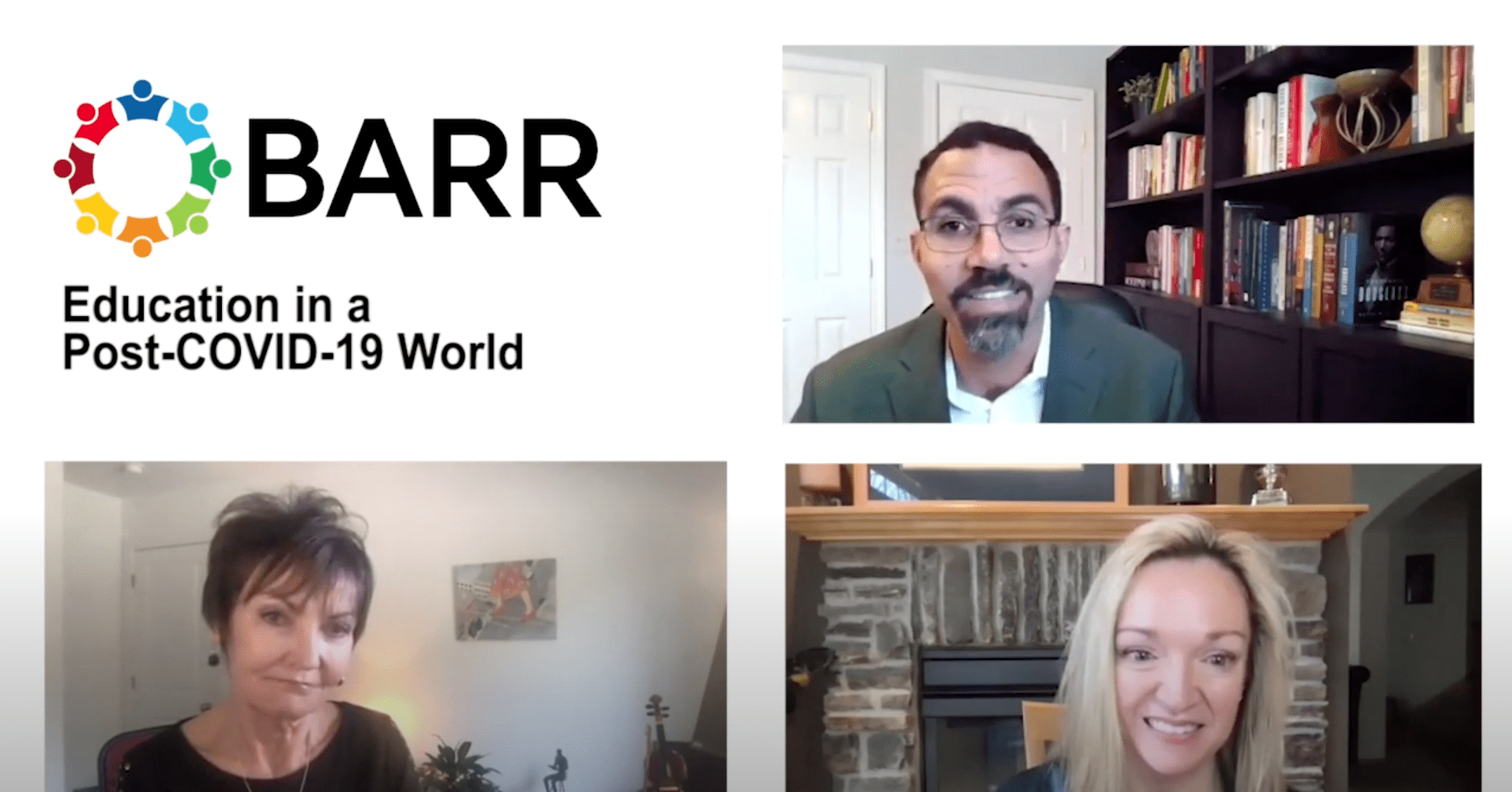On December 15th, BARR Center hosted a fireside chat about what the pandemic has revealed and how relationships and data help address equity gaps and mitigate learning challenges now and in the future. Guest speakers included the 10th U.S. Secretary of Education John B. King Jr., SAS principal advisor and former South Dakota Secretary of Education Melody Schopp, and the Founder and Executive Director of BARR Center Angela Jerabek.
The speakers touched on how COVID didn’t just create problems, it shed light on issues within the education system that were being ignored.
“My view is that we have to think in terms of building a more just, more equitable future and not just getting back to February 2020 because there were things that were wrong in February 2020,” said John B. King Jr.
During the conversation, the education leaders discussed how students’ access to education and resources, including important ones like reliable internet, is vastly different based on socio-economic status and background. While educators used to say certain things were impossible, like remote learning and teaching, COVID has revealed that these are mere hurdles and are quite possible.
Throughout the conversation, the education leaders emphasized how moving forward schools will have to prioritize student agency, meaning encouraging students to set their own goals and develop time management skills.
“I think kids have had to develop some student agency skills and teachers have had to think through how to support the development of those skills,” said John B. King Jr. “That’s valuable.”
Other key talking points included the importance of relationships for students between their peers, as well as adults. Unstable home environments often make school the one reliable place for students and teachers or faculty to help students with their barriers. That is why the power of relationships and data were discussed as critical components to improve education in the future.
“We need each other and we need each other in ways that we know it’s not a possibility to work in a silo,” said Jerabek.
Data, as shown by BARR, is incredibly important for schooling. Every school has some information that can be helpful to leverage as data so that they can analyze and improve. Students who are in a distance learning model have not met their teachers or classmates in-person, making the power of relationships that much more important.
“It’s really as critical today as it has been forever,” said Schopp.
The leaders discuss how COVID will allow schools to re-evaluate and change their flawed systems so we can ensure we are helping meet the needs of each and every student moving forward.
“I look forward to thinking of new ways that we can continue to help our young people and our society grow,” said Jerabek.
